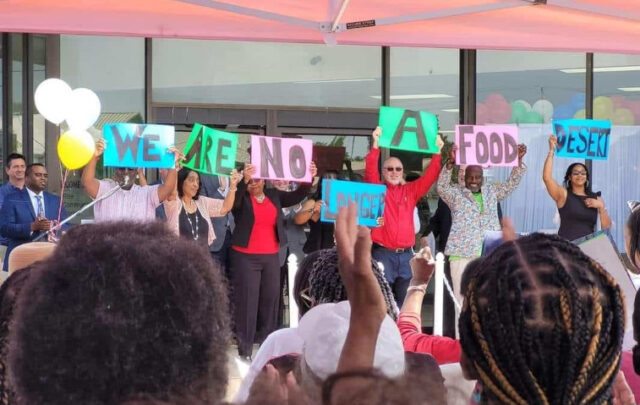
Forget about the presents and the TV specials, without a doubt my favourite part of Christmas is the food. When it’s this cold outside there’s nothing better than sitting down with some loved ones and eating yourself into a merry stupor. But this year won’t be quite the same for me.
For the past 12 months I’ve been taking a serious look at the reality of our modern food system and the impacts it has on our environment, our health and our communities. It was a sobering experience.
The point of a food system should be to advance our wellbeing, in a way that is socially just and sustainable over time. A system that does so would have some defining characteristics; for example, it would: have a neutral or positive environmental impact; be productive in its use of energy and other inputs; support good jobs; be dominated by short and simple supply chains; foster a positive and thriving food culture and the highest levels of public health; and make food affordable to everyone.
In our latest report we find that the UK food system fails on almost all fronts:
- It is unsustainable: we estimate the total environmental impact of the UK food system to be in the region of £5.7–7.2 billion per year, or 6.3–7.9% of the market price of food, and probably higher.
- It is energy-intensive: we calculate that the UK food system uses roughly eight calories of energy to produce every one calorie of energy from food.
- It supports bad jobs: the UK food system employs approximately 11% of the UK labour force, but most of them are in the least-well-paid jobs, with salaries of less than half the UK average.
- It is highly complex and opaque: both the decreasing share of total value going to farmers and recent events such as the horsemeat scandal testify to the extreme and increasing complexity of our UK system.
- It is unequal: all 17 million hectares of agricultural land is owned by about 0.25% of the UK population and the price of an acre of bare land has increased more than threefold from 2004.
- It is volatile: Britons spend less on food than almost any other EU country, but recent price spikes have hit poor households the hardest.
So we have to ask ourselves: is this system really working in our best interests?
It seems clear to me that we need an urgent and systemic transformation to re-orient our relationship with food towards the goals that really matter to us: wellbeing, social justice and sustainability. To get some inspiration we visited a number of projects throughout Europe where pioneering food producers are building systems that look much closer to our idea of success.
In Germany we learned about circular, resource-efficient energy systems and integrated local supply chains. In Spain we saw how creating good jobs in food manufacturing can strengthen and support vulnerable local people. In Italy we were introduced to the principles of farming in collaboration, not competition, with nature. And back in the UK we experienced the cultural and community dimensions of farming. The overall lesson: good food is possible and it’s already happening. But the examples we saw are the exception to the rule.
Food should be something that we can savour as part of a system that nourishes our environment, our communities and ourselves. Our current food system, which is based on the exploitation of all three, is nothing to celebrate, even at this time of year.





